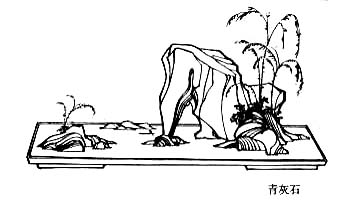論
語
Lun Yu 
 – Les Entretiens de Confucius
– Les Entretiens de Confucius
Le Maître échange propos, anecdotes, brèves paraboles et maximes avec ses disciples. Tr. Couvreur (fr), Legge (en) et Lau (en).
Lunyu XIII. 15. (332)
Ting, prince de Lou, demanda à Confucius s'il existait un adage qui puisse faire prospérer un pays. Confucius répondit : « Un adage ne peut avoir une telle portée. Il est un dicton : “Il est malaisé d'être souverain, il n'est pas facile d'être ministre.” Si le prince comprenait bien la difficulté de régner, ne serait-il pas sur le point de faire prospérer le pays par ce seul adage ? »
Le prince Ting dit : « Existe-t-il un adage susceptible d'entraîner la ruine du pays ? » Confucius répondit : « Un adage ne peut avoir une telle portée. Il est un dicton : “Je ne trouve pas d'agrément dans l'exercice du pouvoir ; si ce n'est que, quand je parle, personne ne me contredit.” Si le prince parle bien, et que personne ne le contredise, ne sera-ce pas bien ? Mais s'il parle mal, et que personne ne le contredise, n'est-il pas sur le point, par ce seul adage, de mener le pays à sa perte ? »
Couvreur XIII.15.
How the prosperity and ruin of a country may depend on the ruler's view of his position, his feeling its difficulty, or only cherishing a headstrong will.
1. The Duke Ting asked whether there was a single sentence which could make a country prosperous. Confucius replied, "Such an effect cannot be expected from one sentence.
2. "There is a saying, however, which people have – 'To be a prince is difficult; to be a minister is not easy.'
3. "If a ruler knows this, – the difficulty of being a prince, – may there not be expected from this one sentence the prosperity of his country?"
4. The duke then said, "Is there a single sentence which can ruin a country?" Confucius replied, "Such an effect as that cannot be expected from one sentence. There is, however, the saying which people have – 'I have no pleasure in being a prince, but only in that no one can offer any opposition to what I say!'
5. "If a ruler's words be good, is it not also good that no one oppose them? But if they are not good, and no one opposes them, may there not be expected from this one sentence the ruin of his country?"
Legge XIII.15.
Duke Ting asked, 'Is there such a thing as a single saying that can lead a state to prosperity?'
Confucius answered, 'A saying cannot quite do that. There is a saying amongst men: "U is difficult to be a ruler, and it is not easy to be a subject either." If the ruler understands the difficulty of being a ruler, then is this not almost a case of a saying leading the state to prosperity?'
'Is there such a thing as a saying that can lead the state to ruin?'
Confucius answered, 'A saying cannot quite do that. There is a saying amongst men: "I do not at all enjoy being a ruler, except for in fact that no one goes against what I say." If what he says is good and no one goes against him, good. But if what he says is not good and no one goes against him, then is this not almost a case of a saying leading the state to ruin?'
Lau [13:15]

Les Entretiens de Confucius – Lun Yu XIII. 15. (332) – Chinois on/off – Français/English
Alias the Lunyu, the Lun Yü, the Analects, les Entretiens du maître avec ses disciples.
Le Canon des Poèmes, Les Entretiens, La Grande Étude, Le Juste Milieu, Les Trois Caractères, Le Livre des Mutations, De la Voie et la Vertu, 300 poèmes Tang, L'Art de la guerre, Trente-six stratagèmes
Bienvenue, aide, notes, introduction, table.
Index – Contact – Haut de page























